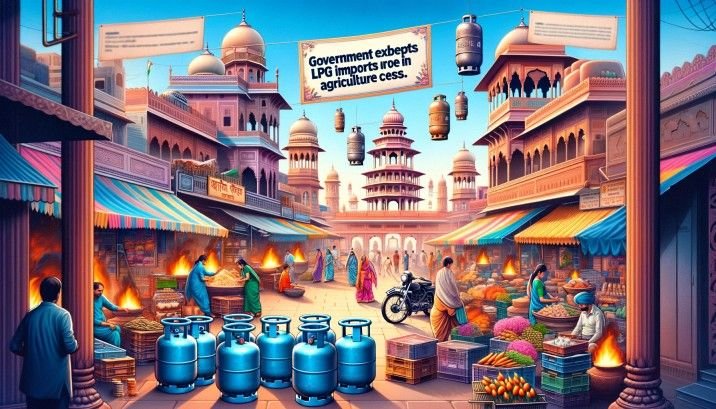The Indian government’s exemption of LPG, liquified propane, and liquified butane imports from the 15% Agriculture Infrastructure Development Cess (AIDC) effective September 1, 2023, is a significant economic policy decision. This measure was taken in the context of global energy price fluctuations and aims to ease the financial strain on consumers and Oil Marketing Companies (OMCs) in India.
Background of the AIDC
Introduction and Purpose: The AIDC was introduced in July 2023 as a fiscal measure to support the development of agriculture infrastructure in India. The cess was applied to certain imports, including fossil fuels, with the goal of generating additional revenue for the government to fund agricultural projects.
Impact on LPG Prices: Since LPG is a widely used domestic fuel in India, the introduction of the AIDC added a significant burden on the price of LPG imports. This, in turn, translated to higher costs for consumers and OMCs.
Global Context
Rising Global Energy Prices: During this period, the world was experiencing a surge in energy prices. Factors contributing to this included geopolitical tensions, supply chain disruptions, and increasing demand post-pandemic recovery efforts.
Impact on India: As a large importer of fossil fuels, including LPG, India was particularly affected. The combined impact of the AIDC and the global energy price hike resulted in increased costs of LPG in the domestic market.
Government’s Decision to Exempt LPG Imports from AIDC
Rationale: Recognizing the additional financial burden on consumers and OMCs, the government decided to exempt LPG imports from the AIDC. This move was aimed at providing immediate relief to both end-users and companies involved in the import and distribution of LPG.
-
Reduced Consumer Prices: By removing the AIDC, the government aims to reduce the landed cost of LPG, which could lead to lower retail prices for consumers.
Financial Relief for OMCs: OMCs, already under pressure from high import costs, would benefit from reduced expenses, potentially stabilizing their financial situation.
Price Stability: The exemption is expected to contribute to more stable LPG prices, which is crucial for household budgeting and business planning.
Broader Economic Implications
Consumer Savings: Lower LPG prices can result in significant savings for households, especially in lower-income groups who are more vulnerable to price fluctuations.
Business Environment: For businesses that rely on LPG as a fuel, lower costs could lead to reduced operational expenses and potentially more competitive pricing for their products or services.
Economic Stability: By stabilizing a key energy resource, the government’s decision could contribute to broader economic stability, a crucial factor in attracting investment and fostering economic growth.
Balancing Development Needs: This decision also reflects the government’s approach to balancing the immediate financial needs of its citizens and key industries with the longer-term goal of developing agricultural infrastructure.
In conclusion, the exemption of LPG imports from the AIDC by the Indian government is a strategic response to the global energy crisis, aimed at mitigating its impact on the domestic front. While it serves the immediate need of reducing financial strain on consumers and OMCs, it also underscores the government’s agility in adapting its fiscal policies to the changing economic landscape.
